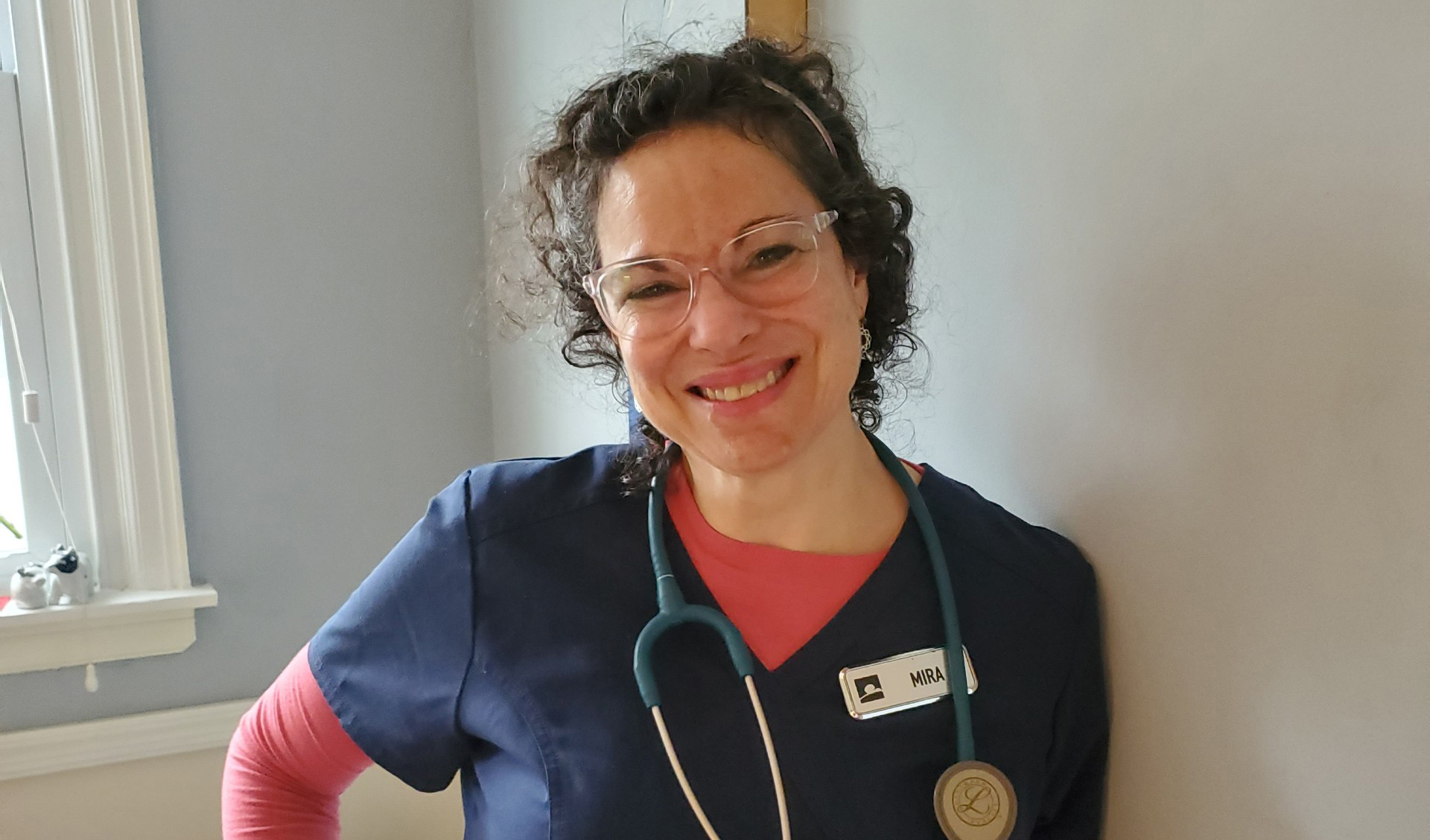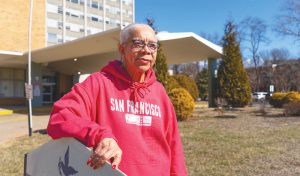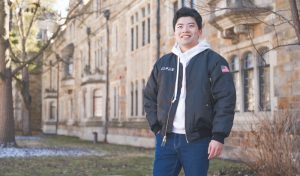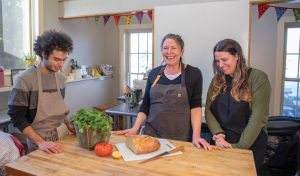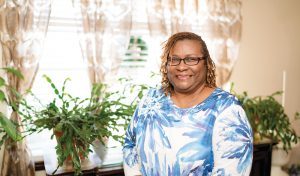by Mira McEwan
Jenkintown, PA.
As with all incoming patients, I read Wilma’s file before meeting her in person. She was in her 70s and suffered from an obstructive pulmonary disorder, a condition that, in my experience as a nurse, puts a person in pretty bad shape. So I was surprised when she arrived at our care facility in 2017, talkative, wheeling herself around, playing bingo, helping others. Her energy rippled out, uplifting the people around her. This one’s got a life spark, I thought. We got to talking, and soon the conversation turned to Buddhism, which she’d been practicing for many years.
A lot was going on in my personal life at the time. My husband struggled with depression, family relationships were rocky, and I’d been unjustly accused with handling narcotics at work and stood to lose my license. I had turned to several religious traditions and practices for the wisdom to navigate these challenges. Speaking with Wilma, however, I realized I was looking for answers outside of myself, to gods or forces operating outside of my own life. Buddhism, Wilma explained, teaches that the most beautiful and respectworthy condition—the Buddha nature—exists inside each person. Its name is Nam-myoho-renge-kyo. As I began chanting, I began to shift the way I was approaching what I was going through. My husband’s health, the family squabbles and the accusations at work all cleared up in a matter of months. But most significantly was the new meaning Buddhism instilled in my work.
For the 20 years that I’ve been a nurse, the work has been about serving others. But until encountering Buddhism, it was carried out with a sense of separation. I was the nurse, they were the patients. Buddhism lent a new dimension: my patients were people I had known in previous lives. Far more than simply the right livelihood for me, nursing became a major part of my spiritual path. Work became the place to advance with those with whom I shared deep karmic bonds.
The challenges that come with age and illness can cause feelings of helplessness and shame among my patients. I began to consider those feelings as veils concealing their Buddha nature. Every interaction with a co-worker or resident became an opportunity for me to invite someone to deeply respect themself.
With the onset of the pandemic in 2020, all the challenges of working in a long-term care facility intensified. Nursing homes in our area “shut down,” meaning that no one could visit. Residents were isolated in their rooms: no activities, no communal meals, no socializing. It’s hard to convey the horror of it. Often all the residents could do was watch TV, which often blared reports of high COVID-19 death tolls, in nursing homes in particular.
Gongyo and daimoku were the fuel that kept me going. I chanted for the wisdom to present every human being I encountered with my Buddha nature, that whatever room I walked into, the Buddha nature would be the most powerful force present. For the especially compromised, the highly anxious or confused, this sometimes meant just sitting with them, holding their hand and chanting softly. A few times I had the privilege of being with people as they were dying. Because they were dying, not just of COVID-19, and not even mostly from COVID-19; the isolation also significantly increased mortality.
In particular, I spent a lot of time with one young woman with rapidly advancing Lou Gehrig’s disease. I was determined to connect with her, but she communicated very slowly. What she needed was time, something often in short supply in health care. I decided to make the time, arriving early so we could go slow, so I could listen and show her that what she had to say was important to me. I reflected again and again on the Buddhist concept of the “oneness of self and others,” reminding myself that, were my karma different, I could be the one battling illness, I could be the one in the hospital bed. Acknowledging this viscerally helped put me in tune with the other person, their insecurities, wants and needs. From this place I could intuit a positive course of action. With this young woman, as with others, it was never anything fancy. Sometimes it was as simple as a well-timed joke. She’d laugh, I’d laugh, and I’d know we were on the right track. We were tuned in together to the Buddha nature.
Beginning my mornings with daimoku and this extra effort to bring joy to this young woman changed the way I interacted with others the rest of the day. Even amid those horrible pandemic conditions, I found I could be joyful, even fun. I could put others at ease, residents and co-workers alike. The efforts I made rippled out—people engaged more lightheartedly.
Before weathering the pandemic, the concept of “kosen-rufu,” or world peace through the spread of Nichiren Buddhist ideals, could feel somewhat remote. But by making a vow to share hardship and laughter with my patients in a time of crisis, I came to more deeply appreciate the word. I got to see firsthand how my determined prayer carried through into my environment, rippling out and uplifting those who were suffering intensely. If such changes are possible even under those conditions, I am convinced they are possible anywhere.
What advice would you give the youth?
Mira McEwan: Building relationships should be fun, enjoyable; never a chore. Engaging others, I find our differences matter little when I keep in mind that I’m engaging a Buddha. When we come to each other in this spirit, we part richer.
You are reading {{ meterCount }} of {{ meterMax }} free premium articles

